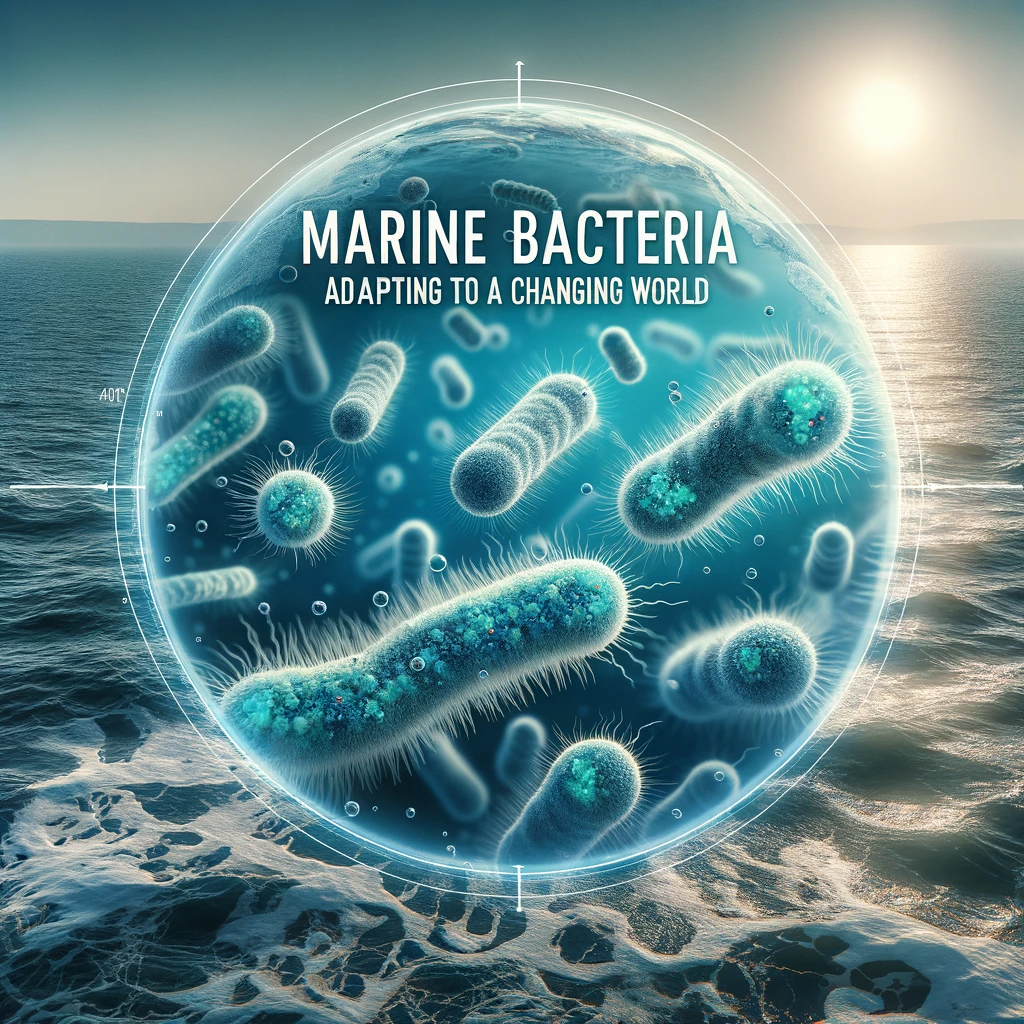Marine Microbiomes: Adapting to Climate Change

Beneath the ocean’s surface lies a world teeming with microscopic life. Marine microbiomes, communities of tiny organisms, play a crucial role in maintaining the health of our oceans. As global temperatures rise and ocean waters warm, a pressing question emerges: How do these microorganisms adapt to changing temperatures?
A recent study titled “Enzyme adaptation to habitat thermal legacy shapes the thermal plasticity of marine microbiomes“, published in Nature Communications, sheds light on this issue. The research explores how marine microorganisms, specifically their enzymes, adjust to temperature fluctuations influenced by their habitat’s historical temperature conditions.
The Importance of Enzyme Adaptation
Enzymes are proteins that accelerate chemical reactions within cells, making them essential for life. In marine microorganisms, enzymes facilitate processes vital to ocean ecosystems. The study found that the enzymes in marine microbiomes adapt uniquely to their “thermal legacy”—the historical temperature conditions of their environment.
To put it simply, microorganisms from colder regions have enzymes optimized for lower temperatures, while those from warmer areas thrive in higher temperatures. This adaptation is similar to how humans acclimate to their local climates.
Significance in the Face of Climate Change
Understanding these adaptations is critical as our planet grapples with climate change. If marine microbiomes cannot adjust quickly enough to rising temperatures, the delicate balance of ocean ecosystems could be disrupted. This disruption may have far-reaching effects on marine life and, by extension, on human communities that rely on the ocean for food and economic activities.
Exploring the Research Methodology
To comprehend the depth of this study, it’s important to look at how the scientists conducted their research. They focused on enzymes because these proteins are indicators of a cell’s ability to function at different temperatures. Enzymes operate best within specific temperature ranges, much like machines that have optimal operating conditions.
Sample Collection Across Diverse Habitats
The researchers collected samples from various marine habitats with differing temperature histories. This included warm tropical waters and cold polar regions. By comparing microbiomes from these distinct environments, they could assess how thermal legacy influences enzyme adaptation.
Laboratory Experiments and Genetic Analysis
In the lab, the scientists conducted experiments to test how enzymes from different habitats respond to temperature changes. They observed which enzymes were more flexible—or “thermally plastic”—in adapting to new temperatures. Additionally, they analyzed the genetic makeup of these enzymes. This genetic examination provided insights into the evolutionary history and potential adaptability of marine microorganisms.
Key Findings and Their Implications
The study revealed several important findings:
- Thermal Legacy Impacts Enzyme Adaptation: Microorganisms inherit adaptations based on the historical temperatures of their habitats. Enzymes from warm-water microbiomes are optimized for higher temperatures, while those from cold-water environments function best at lower temperatures.
- Limited Adaptability in Stable Environments: Microbiomes from habitats with historically stable temperatures, such as the deep sea, show less flexibility when exposed to temperature changes. This is concerning because even these stable environments are experiencing shifts due to climate change.
- Potential Disruption of Marine Ecosystems: If marine microorganisms cannot adapt to rapidly changing temperatures, it could disrupt the ocean’s food web. Microbiomes play a foundational role in nutrient cycling and energy flow. Their decline could impact larger marine species and, ultimately, human industries like fisheries.
The Broader Impact on Ocean Health
The health of marine microbiomes is not just a scientific concern; it’s a global one. These microorganisms contribute to oxygen production, carbon sequestration, and the breakdown of organic matter. Their well-being affects everything from the smallest plankton to the largest whales.
Moreover, oceans absorb a significant amount of the Earth’s excess heat and carbon dioxide. Changes in microbial activity could alter this capacity, potentially exacerbating the effects of climate change.
A Call to Action: Protecting Marine Microbiomes
The findings of this study underscore the urgent need for action:
- Mitigate Climate Change: Reducing greenhouse gas emissions is crucial to slow down ocean warming. Global efforts to combat climate change can help preserve the habitats that marine microbiomes depend on.
- Support Marine Conservation: Establishing marine protected areas can safeguard vulnerable habitats. Conservation efforts should prioritize regions where microbiomes are less adaptable to temperature changes.
- Promote Further Research: Continued scientific research is essential to deepen our understanding of marine microbiomes. By learning more about these organisms, we can develop strategies to enhance their resilience.
The study “Enzyme adaptation to habitat thermal legacy shapes the thermal plasticity of marine microbiomes” highlights a vital aspect of ocean health. As ocean temperatures rise, the ability of marine microorganisms to adapt is crucial for maintaining ecological balance.
Our oceans are interconnected systems where each component plays a significant role. Protecting marine microbiomes is not just about preserving microscopic life; it’s about safeguarding the entire marine ecosystem and, ultimately, our own well-being.
By taking collective action now, we can help ensure that the delicate balance of life beneath the waves remains intact for future generations.
References
- Original Research Paper (Link to the Nature Communications article)
Keywords
Marine Microbiomes, Enzyme Adaptation, Thermal Legacy, Ocean Temperature Changes, Climate Change Impact, Marine Ecosystems, Microorganism Resilience, Ocean Conservation
Disclaimer: The information presented in this article is for educational purposes and reflects the findings as reported in the referenced research. For detailed information, please consult the original research paper or a qualified expert.



